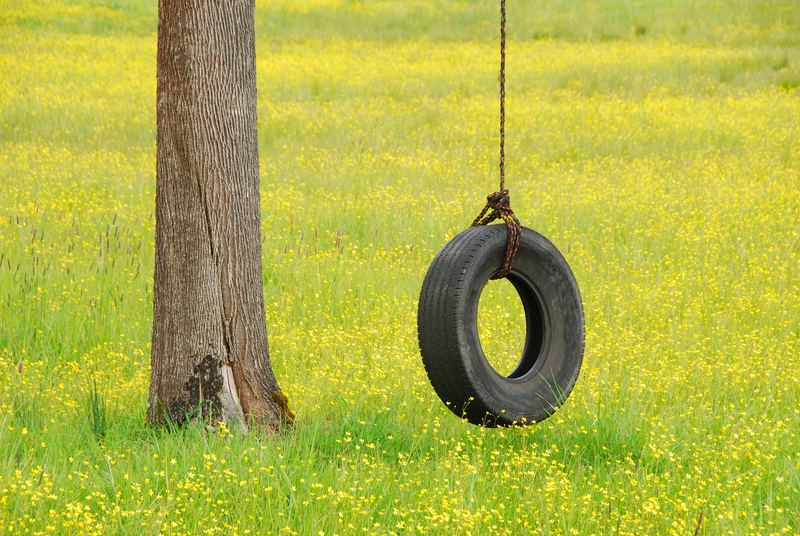Empower Your Home with Effective Waste Reduction Tips
Ready to make your household greener and more sustainable? In this comprehensive guide, discover effective waste reduction tips that empower your home, save you money, and protect the environment. By adopting smarter habits, every family can dramatically reduce their ecological footprint. Here's everything you need to know about minimizing waste at home--step by step.

Why Household Waste Reduction Matters
Did you know the average household generates several pounds of waste daily? With waste-management systems under increasing strain, simple changes at home are vital for a healthier planet--and a more efficient home. Implementing waste reduction strategies not only conserves resources but also lessens landfill stress and pollution.
- Environmental impact: Landfills generate methane, a potent greenhouse gas.
- Conservation: Reducing waste saves water, energy, and raw materials.
- Economic benefits: Families can save hundreds by cutting down on disposables and food waste.
Getting Started: Assess & Set Waste Reduction Goals
1. Conduct a Household Waste Audit
Begin by tracking your family's waste for one week. Sort your daily garbage, recycling, and compost to see what comprises the majority of your trash. Identifying your biggest culprits helps you tailor your waste reduction efforts effectively.
- Use clear bags for easier sorting and observation.
- Take notes on commonly discarded items like packaging and food scraps.
- Share results with household members to motivate change.
2. Set Achievable Waste Reduction Goals
With your audit results, set tangible goals--such as eliminating single-use plastics, reducing food waste by 50%, or composting weekly. Small, measurable steps are key to building lasting habits.
Practical Tips for Reducing Household Waste
3. Reduce, Reuse, Recycle--The Classic Waste Hierarchy
Reduce is always the top priority. Limit the materials and products you bring into your home. Choose items with less packaging, buy in bulk, and opt for quality goods that last. Reuse containers, bags, and materials whenever possible. And, recycle--but do so correctly and according to your municipality's guidelines.
- Tip: Keep reusable shopping bags, produce bags, and containers in your car or entryway for easy access.
- Repair rather than toss broken household items.
- Donate gently used goods to local charities instead of throwing them away.
4. Cut Food Waste with Smart Planning
Food waste is a major source of household garbage. Empower your home with these effective food waste reduction techniques:
- Plan meals and make shopping lists to avoid impulse buying.
- Store food properly using airtight containers, and learn optimal fridge/freezer organization.
- Practice "first in, first out," using older ingredients before newer ones.
- Repurpose leftovers into soups, casseroles, or snacks.
- Compost unavoidable food scraps (e.g., vegetable peels, coffee grounds).
Bonus: Try batch cooking and freezing portions to streamline meal prep and minimize spoilage.
5. Minimize Single-Use Plastics
Single-use plastics are among the worst offenders for ocean and landfill pollution. Empower your home with these sustainable tweaks:
- Switch to glass or stainless steel water bottles and food storage containers.
- Use beeswax wraps instead of plastic wrap.
- Purchase bar soap, shampoo, and refillable cleaning products.
- Request no utensils or straws for take-out orders, unless needed.
6. Composting Made Easy
Composting diverts up to 30% of household waste from landfills and gives you nutrient-rich soil for gardening. Even apartment dwellers can start with a simple worm bin or compact compost system.
- Discover what items compost best (vegetable peels, coffee grounds, eggshells) and what to avoid (meat, dairy).
- Turn your pile for aeration and faster decomposition.
- Use finished compost to nourish your lawn and garden.
7. Smart Shopping for Waste Reduction
Becoming a conscious consumer is among the best waste minimization techniques:
- Buy in bulk to reduce packaging waste.
- Choose items with minimal or recyclable packaging.
- Support local farmers and vendors who use less packaging and offer fresher products.
- Consider second-hand options for gadgets, furniture, and clothing.
Tackling Different Types of Household Waste
8. Reducing Paper and Cardboard Waste
In the digital era, it's easier than ever to cut down on paper clutter:
- Switch to electronic bills and statements.
- Cancel unnecessary mail and catalogs.
- Use the "unsubscribe" feature to eliminate junk mail.
- Print double-sided, and reuse one-sided sheets as scrap paper.
- Recycle cardboard boxes or offer them on community groups for reuse.
9. Responsible Management of E-Waste
Electronic waste is fast-growing and contains harmful components. Reduce e-waste by:
- Buying quality devices that last longer.
- Repairing electronics before replacing them.
- Donating or selling working gadgets.
- Dropping off broken electronics at certified e-waste recycling centers.
10. Household Hazardous Waste: Safe Disposal
Paints, batteries, chemicals, and medications can pollute water and soil if not disposed of properly. Take these precautions:
- Use up household chemicals fully, or give leftovers to neighbors or community groups.
- Never pour medications down the drain--use pharmacy take-back programs instead.
- Check local guidelines for designated collection days or drop-off points for hazardous waste.
Cultivating a Waste Reduction Mindset
11. Educate and Involve the Whole Family
Empowering your home starts with every member. Let children help sort recycling, make signs for bins, and participate in meal planning. Encourage creative upcycling projects--turn old t-shirts into cleaning rags, or glass jars into organizers.
12. Track Progress & Celebrate Successes
Celebrate reduced garbage output with small rewards or a fun family outing. Share your progress on social media to inspire others. You'll be amazed how much less you throw out after a few months of conscious effort!
Advanced Home Waste Reduction Techniques
13. Green Cleaning and Personal Care
Create your own cleaners using vinegar, baking soda, and lemon, cutting out dozens of single-use bottles. Choose refillable razors, bamboo toothbrushes, and eco-friendly sponges.
- Make homemade laundry detergent and dishwasher tablets.
- Refill shampoo, soap, and lotion at bulk stores.
- Switch to compostable or reusable cleaning cloths.
14. Grow Your Own Food
From windowsill herbs to backyard veggies, growing your own food slashes packaging waste and trips to the store. Compost trimmings to complete the waste reduction cycle.
15. Upcycle and Repair Instead of Disposing
Get creative with items you'd otherwise discard:
- Redesign worn clothes into bags, quilts, or pet beds.
- Create planters or bird feeders from old containers.
- Join online groups for repair advice, or attend community fix-it clinics.
Maximizing Recycling Effectiveness
16. Understand Local Recycling Rules
Misplaced items can contaminate entire batches of recyclables. Visit your city's waste management website for up-to-date guides on what's acceptable in your bins. Rinse containers, remove caps, and flatten cardboard boxes for efficient sorting.
17. Prepare Materials Appropriately
- Cleanliness: Rinse food containers to avoid rodent and odor issues.
- Separation: Sort glass, paper, plastics, and metal per guidelines.
- Education: Display reminders near bins to help visitors or kids recycle correctly.

Community and Long-Term Waste Reduction
18. Advocate for Change in Your Community
Encourage your neighbors, schools, and local businesses to implement similar waste minimization strategies. Support bans on single-use plastics, and participate in local clean-up events. Consider starting a neighborhood compost initiative or community tool library.
19. Support Businesses Focused on Sustainability
- Shop at zero-waste or refill stores.
- Use services that repair and maintain goods rather than encourage disposables.
- Reward companies innovating for waste reduction by choosing their products.
Conclusion: Start Your Home Waste Reduction Journey Today
With these effective waste reduction tips, your home can become a model of sustainable living. Empowering your household with waste reduction strategies benefits your wallet, health, and the planet. Remember: every small action adds up to big results. Begin with simple changes, track your progress, and help your family and community join the movement toward a cleaner, greener future.
Your empowered, waste-wise home starts now!
```